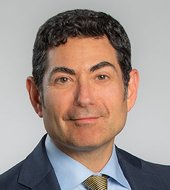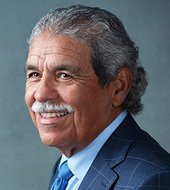NOTE FROM EDITOR: Every year, the Carnegie Corporation of New York celebrates a group of remarkable Americans — all naturalized citizens — who have enriched and strengthened our nation and our democracy through their contributions and actions. As always, these year’s individuals come from a wide range of backgrounds.
———–
Mariano-Florentino (Tino) Cuéllar
President, Carnegie Endowment for International Peace (Mexico)
Mariano-Florentino (Tino) Cuéllar was born in Mexico and immigrated to the United States with his family when he was 14 years old. He became a naturalized citizen at age 21.

Cuéllar is the 10th president of the Carnegie Endowment for International Peace. A former justice of the Supreme Court of California, he was the first Mexican immigrant to hold that position. During his nearly seven years on the bench, Cuéllar led the court system’s operations to better meet the needs of limited English speakers.
Cuéllar has served three U.S. presidential administrations at the White House and in federal agencies. He was the Stanley Morrison Professor of Law at Stanford University, where he held appointments in law, political science, and international affairs. He also led the university’s Freeman Spogli Institute for International Studies.
Cuéllar graduated from Harvard College and Yale Law School and received a PhD in political science from Stanford University. He has spoken about how he overcame issues as someone from a working-class Mexican American background at private universities that were filled with privileged students. “I felt like there was some conquering of fear,” Cuéllar told a gathering of students at California State University, Northridge, in 2017. “Somewhere along the line there was a crucial turning point, maybe about a year into [college]. It kind of flipped and I thought, ‘it’s true that I’m not coming into it with some of what they have, but they’re not coming into this with some of what I have.’”
A member of the American Academy of Arts and Sciences and winner of the Warren M. Christopher Award, Cuéllar serves on the boards of Inflection AI and Harvard University.
——–
Lorgia García Peña
Professor of Latinx Studies, Princeton University (Dominican Republic)
Born in the Dominican Republic, García Peña immigrated to the United States at age 12. She lived in New Jersey and earned BA and MA degrees from Rutgers University, then a PhD from the University of Michigan.

García Peña is a professor at the Effron Center for the Study of America and the Department of African American Studies at Princeton University. She specializes in Latinx studies with a focus on Black Latinidades and the ways anti-Blackness and xenophobia intersect the Global North, producing categories of exclusion that lead to violence and erasure. She is the author of Translating Blackness: Latinx Colonialities in Global Perspective (2022), Community as Rebellion: A Syllabus for Surviving Academia as a Woman of Color (2022), and The Borders of Dominicanidad: Race, Nation, and Archives of Contradiction (2016).
García Peña has won numerous awards, including the Gloria E. Anzaldúa Book Prize, the Latino/a Studies Book Award, the Isis Duarte Book Prize in Haitian and Dominican Studies, and the Angela Y. Davis Prize for Public Scholarship. Named a Marguerite Casey Foundation Freedom Scholar, she cofounded Freedom University, which provides college instruction to undocumented students. García Peña also codirects Archives of Justice, a transnational digital archive focused on people who identify as Black, queer, and migrant.
“My path through academia has been shaped by my personal experiences as an immigrant, a woman of color and a first generation — the first person in my family to graduate from college,” says García Peña. “It is my radical hope that the work I do helps to shatter silences and to center the lives of the communities I come from and care for.”
———
Eliu Misael (Michael) Hinojosa
Chief Impact Officer, engage2learn, and Former Superintendent, Dallas ISD (Mexico)
Eliu Misael (Michael) Hinojosa was born in Mexico and immigrated to the United States with his family when he was in the second grade. He grew up outside of Dallas, Texas, and holds a doctorate in education from the University of Texas at Austin.
Hinojosa’s four-decade career in public education, taking him from teacher and coach to school systems leader, includes more than 27 years as a superintendent/CEO, 13 with the Dallas Independent School District (ISD) — one of the nation’s largest school systems. He retired in 2022 and is now chief impact officer at engage2learn, a nonprofit that partners with public schools to accelerate student outcomes and retain teachers.

Several career achievements stand out for Hinojosa — chiefly, getting broadband access for Dallas students in record time during the COVID pandemic. “People were depending on me,” he told EdTech magazine in early 2023. “You can’t wait and sit back and hope. Hope is not a strategy.” Diversity also increased among school leaders during his tenure, and the Dallas ISD developed a “tremendous dual-language program.”
Hinojosa was named Superintendent of the Year by the Texas Association of School Boards and by the University of Texas at Austin, and Outstanding Latino Educator by the Association of Latino Administrators and Superintendents. He also received the Green-Garner Award, the highest honor in urban education.
Hinojosa advises immigrant families: “My parents, for example, with only a 3rd grade education, knew how important it was to be in school.… One generation removed and most of my family are high school and college graduates.… Don’t chase the money, don’t go for instant gratification, go for the long game, and education gives you the long game.” .on’t go for instant gratification, go for the long game, and education gives you the long game.”



